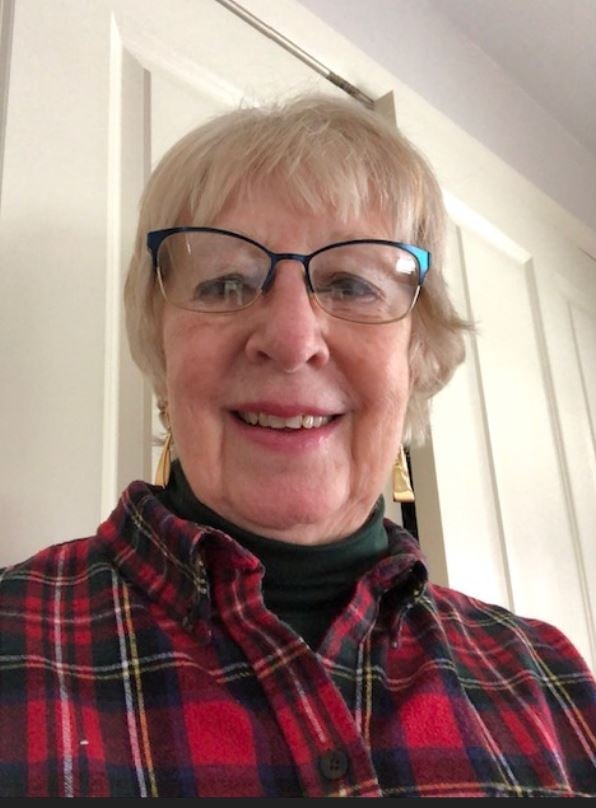Catching Things Early: How Colon Cancer Screening Worked For Mary Davis
March 9, 2021Categories: Cancer Care, Bassett News
The COVID-19 pandemic has understandably disrupted a lot of routines, including schedules for preventive care. But cancer screenings are just as important as ever.
Mary Davis is someone who knows this all too well. She recently received a colon cancer diagnosis after completing routine screening tests.
Paying Attention Wasn't Enough
"I had a bout with cancer six years ago," Davis explains. "I learned then that listening to your body is so critical. As a result, I like to think of myself as a commonsense elderly person who is very aware of her body.
"But in this case, I did not feel any symptoms at all — I just noticed that my bowel movements were getting very, very dark. I mentioned it to my primary care doctor and she suggested a stool test. If we had not, this cancerous tumor could have kept growing for years."
Laughably Simple
The test recommended by Dr. Jennifer O'Reilly was a FIT — a standard colorectal screening test completed by patients at home. These tests are distributed at colon cancer screening events.
At first, the prospect of an at-home-kit seemed intimidating. "I asked Dr. O'Reilly, 'Are you sure I have the ability to do this?'" remembers Davis. "She laughed. Then when I went through the procedure, I understood why. I had to push a stick into my stool, then take it in for lab work. It was very simple! It's not pleasant, sure, but you just have to do these things."
The test confirmed that she had blood in her stool. The next step was to determine the cause of the bleeding. She began working with Dr. Charles Casale, MD, chief of Gastroenterology at Bassett Healthcare Network. Not knowing where in her gastrointestinal tract the blood was coming from, they scheduled a colonoscopy and an endoscopy back-to-back.
Doing What Needs To Be Done

Preparing for a colonoscopy is notorious for being unenjoyable. To empty their bowels completely, patients must drink a very strong laxative the night before the procedure. Davis admits that this was the most difficult part of her experience, but believes it's not bad if you keep things in the proper context.
"I had colonoscopies when I was much younger," she explains. "Anyone who had one years ago and says they would never do that again should know that it has improved.
"The solution is much easier to drink. It's also more effective. I spent one long session on the toilet instead of running up all night." Davis recommends settling in with a book or an iPad and waiting it out.
Davis also keeps the grim necessity of the procedure in mind. "You have to sit on the toilet for a while. A little inconvenience. A little awkwardness. But that's what you have to do in order to find out if there is cancer in your system. The consequence of not doing that is that could mean life or death."
Diagnosis and Next Steps
Dr. Casale found the source of her bleeding: a tumor 5 cm in diameter in her large intestine. A biopsy during the colonoscopy determined it was malignant.
But the good news was that they found it early when it was still small. As a result, when Davis has surgery later this month, she will only have a portion of her colon removed instead of the whole thing. This means after recovery she will return to having bowel movements rather than needing to collect waste in a bag attached to her body.
"I was glad that this can be fixed and I'll still function normally. I've got six grandkids, and I've got other things I want to do with my life."
March is Colorectal Cancer Awareness Month. Bassett Healthcare Network will be hosting several screening events where eligible participants can get a FIT kit similar to the one that Mary Davis used in her story. For more information, visit our colorectal cancer page. You can also sign up for a free at home FIT test at bassett.org/getscreenedcolon. Or, schedule an appointment with your primary care practitioner today.
Colon cancer is preventable, treatable, and beatable. Come to our colon cancer awareness free screening event on March 11, 2021!
Uninsured? High deductible or copay? No problem! Call the Cancer Services Program of the Central Region for information about free colon, breast, and cervical cancer screening at 1-888-345-0225.
To help us all get back on track with preventative care and in recognition of Colon Cancer Awareness Month, the Cancer Services Program of the Central Region (CSP) is offering a free colon cancer screening event. Come to the Delhi Price Chopper Parking Lot at 3 Main Street, Delhi, NY 13753 on March 11 from 10:00am – 2:00pm. There will be freebies, giveaways, health information, and more! Eligible individuals will be able to sign up for free take-home colon cancer screening kits.
